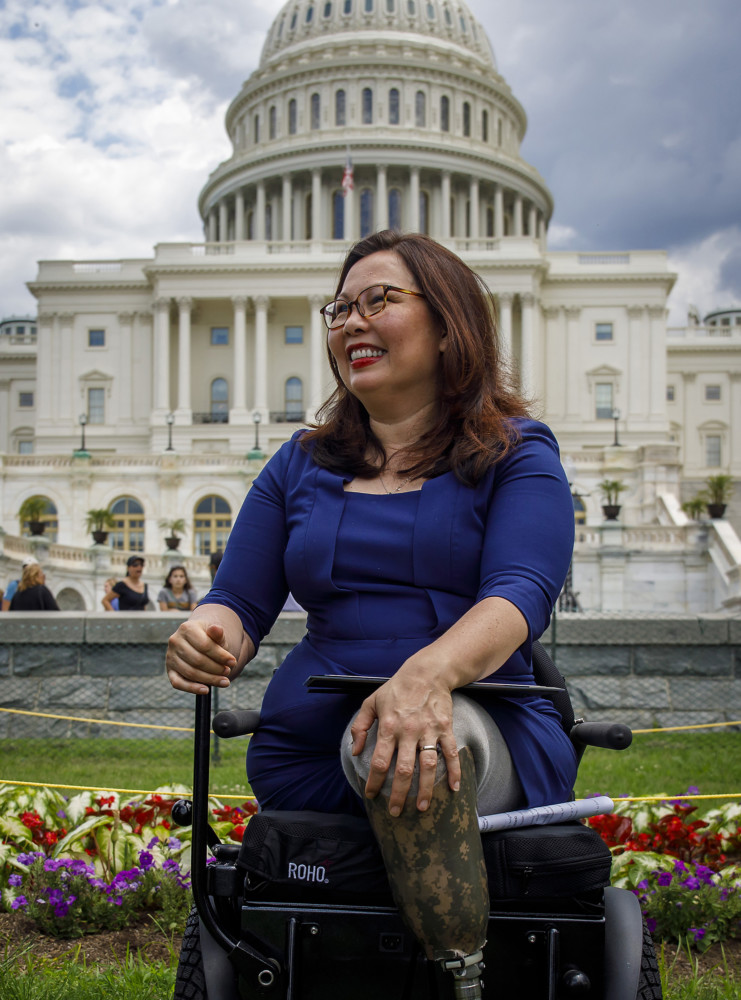By Kate Thayer
Chicago Tribune
WWR Article Summary (tl;dr) Experts say that while returning to work soon after having a baby may empower mothers trying to juggle work and family life, it also can be counterproductive for those fighting for adequate paid leave.
Chicago Tribune
A week after announcing she’d adopted a baby, Washington, D.C., Mayor Muriel Bowser was back at work, addressing the media at a press conference.
She’s not the first high-profile mother to make a swift return to work following the arrival of a baby. In 2012, Marissa Mayer, then Yahoo’s CEO, took just two weeks off following the birth of her twins. And in 2008 , vice presidential candidate Sarah Palin worked the campaign trail in the months after her son was born.
At a time when family-leave policies in the U.S. still lag behind those of other developed nations, experts say that when mothers return to work soon after having a baby, it sends a mixed message.
While it may empower mothers trying to juggle work and family life, it also can be counterproductive for those fighting for adequate paid leave.
Barbara Risman, sociology professor at the University of Illinois at Chicago and senior scholar at the Council on Contemporary Families, said there are positive and negative takeaways from powerful women taking short maternity leaves.
“One thing is … the notion that jobs are so inflexible … that we shouldn’t, as a society, decide that reproduction of the species and attention to the next generation deserves three months, or even six months, of parental care,” Risman said.
Working women, especially those in male-dominated fields, are afraid of the consequences of taking the time to bond with their children, Risman added. And men often believe there’s a stigma to taking on more of a caregiver role, Risman said. “They think they’ll be considered less serious.”
Risman added that many families can’t afford for one or both parents to take unpaid leave, and paid maternity- and paternity-leave policies at many companies aren’t sufficient. There needs to be a shift in thinking in our society, she said, and that would likely take a government mandate requiring companies to have such policies.
“As a society we want to support people who have families,” Risman said, who thinks little support for working parents is part of the reason the U.S. birth rate has fallen. “Working parents should have paid parental leave, and it should be enough that the parent feels comfortable that the child is developing normal and ready for some kind of paid care.”
There have been strides. In April, Sen. Tammy Duckworth became the first sitting U.S. senator to give birth. She inspired a rule change in the Senate to allow infants in the chamber, so she could effectively fill her role as an elected official during her maternity leave, because senators must be physically present to vote. Just after the historic change, Duckworth voted as she cradled 10-day-old Maile Pearl Bowlsbey on the Senate floor.
And a new policy for working parents at the Illinois Department of Public Health is designed to help working families. The department’s Infant at Work program, launched about two weeks ago, allows parents to bring their 1- to 6-month-old babies to work with them, depending on their job duties and work conditions. After a two-year period, the program could be rolled out to other state agencies, said department spokeswoman Divya Mohan Little.
The department decided to pilot the program to help working families and “practice what we preach,” Mohan Little said, referring to the department’s promoting of breastfeeding and parent-infant bonding. So far, four mothers bring their babies, all between 2 and 5 months old, to work with them, she said.
“If you don’t have the vacation time or the financial resources to extend your maternity leave (beyond the four weeks the state pays its employees), this is a really good option,” she said, but added, “This is not meant to be a substitute for maternity leave.”
While Risman said programs allowing parents to bring babies to work help working moms, she pointed out that those mothers could benefit even more if they could be at home during that time without losing income.
Risman also cautioned against criticizing women like Bowser, Mayer and others who choose to take shorter leaves, because it plays into the stereotype that the mothers have to be the primary caregivers.
“Unless we expect every father to take leave, we shouldn’t expect every mother should,” she said.
Bowser’s press secretary LaToya Foster said that after Bowser, a single mother, announced she had adopted a baby, she scaled back on public appearances and other duties for a week but wasn’t completely offline. Foster said Bowser has been fulfilling both roles: mother and mayor. “She never really stopped.”
“Like every other working mother, she’s balancing,” Foster said.














































































































































































































































































































































































